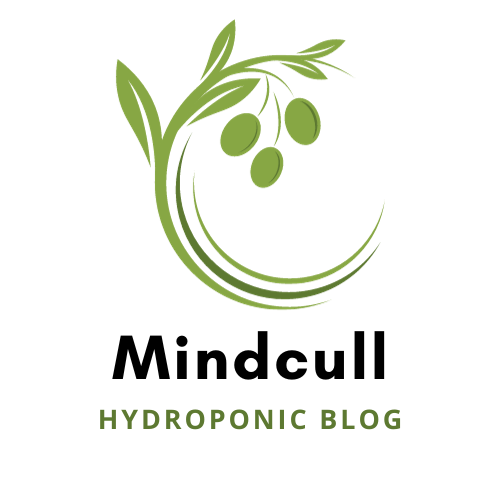Why Do We Need Hydroponics
Hydroponics, a soilless method of growing plants, has gained significant popularity in recent years for its numerous benefits and potential to revolutionize the agricultural industry. This innovative technique involves cultivating plants in nutrient-rich water solutions, with their roots submerged in the solution rather than being planted in soil. By eliminating the need for soil, hydroponics offers a range of advantages that make it a compelling choice for modern agriculture.
First and foremost, hydroponics allows for greater control over plant growth. By carefully monitoring and adjusting nutrient levels, pH balance, and environmental factors such as temperature and light, growers can create ideal conditions for plants to thrive. This precision not only enhances plant growth and yields but also minimizes the risk of diseases, pests, and nutrient deficiencies commonly associated with traditional soil-based farming.
Another significant advantage of hydroponics is its water efficiency. Unlike traditional farming, where water is absorbed by the soil and often lost through evaporation and runoff, hydroponic systems recirculate the nutrient solution, significantly reducing water wastage. In a world grappling with water scarcity and the need to feed a growing population, this resource-efficient farming method becomes increasingly vital.
Additionally, hydroponics has the potential to overcome geographical limitations and enable year-round crop production. By controlling the growing environment, including light, temperature, and humidity, hydroponic systems can be set up anywhere, including regions with unfavorable climate conditions or limited arable land. This not only reduces dependence on traditional agricultural practices but also ensures a consistent supply of crops regardless of seasonal fluctuations.
Furthermore, hydroponics has the power to extend the lifespan of certain crops and increase their nutritional value. Without the need to extract nutrients from soil, plants can allocate more energy towards growth and nutrient absorption, resulting in faster growth rates and healthier produce. Moreover, the controlled environment in which hydroponics operates allows for the customization of nutrient solutions, enabling the production of nutritionally enhanced crops tailored to specific dietary needs.
In conclusion, hydroponics offers a compelling alternative to traditional soil-based agriculture, addressing various challenges faced by the industry today. From enhancing crop control and water efficiency to ensuring year-round cultivation and nutrient-rich produce, this innovative growing method holds immense potential for the future of farming. In the subsequent sections of this blog post, we will explore the different types of hydroponic systems and delve deeper into the benefits and challenges of adopting this cutting-edge approach to sustainable agriculture.
Briefly explain what hydroponics is

Hydroponics is a modern agricultural technique that involves growing plants without the use of soil. Instead, plants are cultivated in a nutrient-rich solution, providing them with all the necessary elements for robust growth. This method relies on various mediums such as sand, gravel, or perlite to support the plant’s roots and keep them anchored in place.
The concept of hydroponics may seem unconventional, but it offers numerous advantages over traditional soil-based farming. By controlling the nutrients, water, and light exposure, hydroponic systems allow for optimal plant growth and yield. In this controlled environment, plants can grow faster and produce higher-quality crops, making it a desirable option for commercial agriculture.
One key benefit of hydroponics is its ability to conserve water efficiently. Compared to traditional farming, hydroponics uses up to 90% less water because it recirculates the solution, limiting wastage. This eco-friendly approach not only addresses the global water scarcity issue but also reduces the burden on irrigation systems.
Moreover, hydroponics enables year-round cultivation regardless of external weather conditions. Greenhouse hydroponic systems, for example, protect plants from extreme temperatures, enabling farmers to grow crops throughout the year. This not only ensures a consistent supply of fresh produce but also eliminates the dependence on seasonal harvests.
Additionally, hydroponics allows for increased crop density and space optimization. As plants do not require large root systems to search for nutrients underground, they can be arranged more closely together. This vertical farming approach maximizes land usage, making hydroponics an ideal solution for urban areas or countries with limited arable land.
Furthermore, hydroponics minimizes the risk of soil-borne diseases and pest infestations. Since plants are not grown in soil, eliminating pathogens and pests becomes more manageable. This reduces the need for harmful pesticides or herbicides, making hydroponically grown produce healthier and safer for consumption.
As the world faces numerous challenges related to food security, sustainability, and efficient resource utilization, hydroponics stands out as a viable solution. Its innovative approach to farming offers opportunities for businesses to meet growing demand, minimize environmental impact, and provide high-quality, nutrient-rich crops to consumers.
In conclusion, hydroponics is a revolutionary farming technique that allows for soil-free cultivation of plants. With its numerous advantages, including water conservation, year-round cultivation, space optimization, and disease prevention, hydroponics has the potential to revolutionize the agricultural industry. Embracing this method can help businesses establish themselves as pioneers in sustainable and professional farming practices.
Explain the purpose and importance of the blog post

Hydroponics, a soilless method of growing plants, has been gaining popularity in recent years. As we witness the increasing demands on our finite land resources and encounter challenges like climate change, it becomes crucial for businesses and individuals to explore sustainable solutions for food production. This blog post aims to shed light on the purpose and importance of hydroponics in addressing these pressing issues.
One of the primary reasons why hydroponics is becoming increasingly necessary is its ability to maximize space utilization. In traditional soil-based farming, vast areas of land are required to cultivate crops. However, with hydroponics, plants can be grown vertically, allowing for multiple layers of growth and utilizing space more efficiently. This is especially beneficial in urban environments, where land availability is limited, but the demand for fresh produce remains high.
Moreover, hydroponics provides the flexibility of year-round cultivation. By controlling the environment in which plants grow, factors such as temperature, light, and nutrient supply can be optimized to create ideal growing conditions. Unlike traditional farming methods that rely on seasonal changes, hydroponic systems enable consistent and continuous cultivation, ensuring a steady supply of fresh produce regardless of the external climate.
Another significant advantage of hydroponics is its efficient water usage. Water scarcity is a growing concern globally, and traditional agriculture accounts for a significant portion of water consumption. Hydroponic systems utilize recirculating nutrient solutions, which drastically reduce water usage compared to soil-based farming. Additionally, the controlled nature of hydroponics allows for precise nutrient delivery, minimizing fertilizer runoff and pollution of water sources.
Furthermore, hydroponics offers the potential for increased crop yield and quality. By providing a well-balanced nutrient solution directly to the plant roots, plants can uptake nutrients more efficiently, resulting in faster growth and higher productivity. This method also eliminates the risks associated with soil-borne diseases and pests, reducing the need for chemical pesticides and promoting healthier crops.
Ultimately, the importance of hydroponics lies in its ability to provide a sustainable and innovative solution to the challenges faced by traditional agriculture. By requiring less land, water, and chemicals while offering higher yields and quality produce, hydroponics has the potential to revolutionize our approach to food production. Embracing this soilless cultivation method can contribute to a more sustainable and resilient food system, ensuring a reliable supply of fresh produce for businesses and individuals alike.
In the upcoming sections of this blog post, we will delve deeper into the mechanics of hydroponics, explore its various systems, and discuss the essential elements necessary for successful implementation. Stay tuned to discover how hydroponics can transform the way we grow and consume food in a professional and sustainable manner.
Increased crop production (Hydroponics allows for higher crop yields compared to traditional soil-based farming methods)

In today’s ever-growing world population, ensuring adequate food production becomes a paramount concern. With limited land resources and the constant need for sustainable agricultural practices, hydroponics emerges as a solution for increased crop production. Unlike traditional soil-based farming methods, hydroponics offers the potential for higher and more consistent crop yields.
One of the primary benefits of hydroponics is its ability to optimize the growing conditions for plants. By providing a precisely controlled environment, hydroponics allows growers to tailor various factors such as nutrient levels, pH balance, temperature, and light exposure according to the specific needs of each crop. As a result, plants can grow faster and more efficiently, maximizing their productivity.
In traditional soil-based farming, plants often face limitations due to nutrient deficiencies or imbalances in the soil. This can impede their growth, development, and overall yield potential. Hydroponics eliminates this barrier by directly supplying plants with all the necessary nutrients in a water-based solution. This nutrient-rich water is delivered directly to the plant’s roots, ensuring optimal nutrient uptake and utilization. Consequently, plants thrive in a nutrient-rich environment, promoting rapid and healthy growth.
Another advantage of hydroponics is the reduction of water usage compared to traditional farming methods. With water scarcity becoming a significant global concern, hydroponics offers a more efficient solution in terms of water consumption. In a hydroponic system, water is recirculated, reducing waste and allowing growers to conserve this precious resource. Additionally, since hydroponics eliminates the need for irrigation systems in soil, water can be allocated more precisely, minimizing any unnecessary loss.
Furthermore, the controlled environment of hydroponics minimizes the risk of pest infestations and diseases, leading to healthier plants. By eliminating soil from the equation, hydroponics removes a considerable source of pests and diseases that commonly affect crops. The controlled environment also enables growers to monitor and prevent any potential issues promptly. Consequently, this reduces the need for pesticides and other chemical treatments, making hydroponically grown produce a healthier and more environmentally friendly choice.
In conclusion, hydroponics offers a viable solution to meet the increasing demands of food production. By optimizing growing conditions, ensuring access to essential nutrients, conserving water, and minimizing pest and disease risks, hydroponics enables higher crop yields compared to traditional soil-based farming methods. As we strive for sustainable and efficient agricultural practices, it is evident that hydroponics has a crucial role to play in enhancing global food security.
Efficient use of water resources (Hydroponics uses significantly less water compared to conventional farming techniques)

Hydroponics, as an innovative method of cultivation, offers numerous benefits that make it an essential solution for the future of agriculture. One of the key advantages of hydroponics is the efficient use of water resources, which sets it apart from conventional farming techniques.
In traditional farming, water is often wasted due to uncontrolled irrigation and ineffective use. However, hydroponics operates on a closed-loop system that recycles and reuses water. This closed system allows for precise control over water delivery, ensuring that plants receive just the right amount of moisture they need to thrive.
Compared to traditional soil-based farming, hydroponics uses significantly less water. In fact, studies have shown that hydroponics can reduce water usage by up to 90%. The water used in the system is constantly circulated, meaning that there is minimal evaporation and no runoff, which further contributes to water conservation.
Furthermore, hydroponics eliminates the need for soil, which tends to retain excess water and make it unavailable for plant roots. By bypassing soil altogether, hydroponics provides plants with direct access to water and nutrients, resulting in more efficient water uptake and usage. This targeted approach ensures that every drop of water is utilized effectively, making hydroponics a sustainable choice for water conservation.
Given the increasing water scarcity concerns globally, hydroponics presents an eco-friendly solution that can help alleviate the strain on our limited water resources. Not only does hydroponics minimize water wastage, but it also offers the possibility of growing crops in arid regions where water availability is a challenge.
In conclusion, hydroponics stands out as a farming technique that tackles the issue of water usage in agriculture. By employing a closed-loop water system and eliminating soil, hydroponics allows for efficient water management, dramatically reducing water consumption while maximizing plant growth. Embracing hydroponics not only benefits our environment but also ensures the sustainability of our food production systems in the long run.
Minimizes soil erosion (Since hydroponics does not rely on soil, there is no risk of soil erosion)

Minimizes Soil Erosion:
One of the key advantages of hydroponics is its ability to minimize soil erosion. Traditional agriculture practices heavily rely on soil for nutrient absorption and plant growth. However, excessive tilling, farming, and harsh weather conditions can all contribute to the erosion of soil layers over time. This erosion not only depletes soil fertility but also leads to environmental issues such as sedimentation in waterways, reduced groundwater recharge, and increased vulnerability to landslides.
Hydroponic systems, on the other hand, eliminate the need for soil altogether. Instead, plants are cultivated directly in nutrient-rich water solutions. This soilless nature of hydroponics means that there is no risk of soil erosion occurring. Without traditional farming techniques that disturb the soil, such as plowing and harrowing, the topsoil remains intact and undisturbed.
By reducing soil erosion, hydroponics helps to protect the delicate balance of ecosystems. It prevents sediment runoff into rivers and lakes, safeguarding water quality and aquatic life. Furthermore, it helps to conserve natural resources as there is no need for excessive land use or deforestation typically associated with extensive agriculture. This ecological advantage makes hydroponics an attractive option for sustainable farming practices, particularly in areas with vulnerable and depleted soil conditions.
In addition to being environmentally friendly, hydroponic systems also bring economic benefits. By mitigating soil erosion, farmers can maintain soil health over the long term, reducing the need for costly soil restoration and land rehabilitation efforts. Furthermore, hydroponics allows for higher crop yields in smaller spaces, bringing increased efficiency and profitability to agricultural operations.
Overall, the absence of soil in hydroponic systems eliminates the risk of erosive forces steadily degrading soil quality. This, in turn, protects both the environment and the economic viability of farming practices. Hydroponics not only offers agricultural solutions for regions with limited arable land but also presents a sustainable approach for the future of farming, ensuring food security without compromising our valuable soil resources.
Year-round crop production (Hydroponics allows for continuous and consistent crop production regardless of the season)

Hydroponics revolutionizes the way we approach crop production by offering a year-round solution to the limitation of traditional farming methods. With hydroponics, farmers and growers can now achieve continuous and consistent crop production, irrespective of the season.
Unlike conventional farming that heavily relies on the availability of sunlight, hydroponics utilizes artificial lighting systems to provide plants with the specific light spectra necessary for growth. This means that regardless of whether it’s summer, winter, or any other season, crops can be grown indoors in controlled environments, maintaining optimal growing conditions all year round.
By simulating the ideal conditions needed for plant growth, hydroponics allows for faster and higher-quality crop yields. The absence of natural climate fluctuations, pests, and diseases common in outdoor farming further enhances the potential for year-round production. This controlled environment minimizes the risk of crop failures due to adverse weather conditions, ensuring a stable and reliable food supply throughout the year.
Moreover, hydroponics also provides the flexibility to grow crops that are not typically suited to the local climate. By creating the perfect environment for various plant species, hydroponic systems enable farmers to cultivate a wide range of crops that wouldn’t thrive well under natural conditions. This diversification of crop production can contribute to the availability of a wider variety of fresh produce, which is beneficial for consumers and businesses alike.
Additionally, year-round hydroponic crop production significantly reduces the need for long-distance transportation and importation of perishable goods. By producing locally, businesses can cut down on carbon emissions associated with transportation and storage, contributing to a more sustainable future. Furthermore, a consistent supply of fresh produce throughout the year can help stabilize prices and reduce dependence on importing goods that are not readily available regionally.
In conclusion, year-round crop production through hydroponics offers a solution to the limitations of traditional farming methods. By providing an environment conducive to growth regardless of the season, hydroponics ensures steady and reliable crop yields. The ability to grow a diverse range of plants locally reduces the reliance on importing goods, while also minimizing environmental impact. Embracing hydroponics means embracing sustainable and efficient agricultural practices that can benefit both businesses and consumers in the long run.
No reliance on fertile soil (Hydroponics enables crop cultivation in areas with poor soil quality or contaminated land)

Hydroponics, the innovative technique of growing plants without soil, presents numerous advantages that make it an attractive option for modern agriculture. One of the key benefits of hydroponics is the ability to cultivate crops in areas where the soil quality is poor or the land is contaminated.
Traditional agriculture heavily relies on fertile soil for the growth and nourishment of plants. However, in many parts of the world, fertile lands are becoming scarce, or they may be contaminated due to industrial activities or improper waste disposal. This poses a significant challenge for farmers and can hinder crop production.
Hydroponics eradicates this dependency on fertile soil by providing a controlled environment where plants receive all the necessary nutrients directly through water. This method allows crops to be cultivated in areas with soil that lacks essential nutrients or is of poor quality. As hydroponics relies on water-based nutrient solutions, plants grown through this technique can thrive even in regions with harsh soil conditions.
Furthermore, hydroponics eliminates the risk of soil-borne diseases or pests that can impact plant health, quality, and overall yield. In traditional farming, crops planted in contaminated or disease-infected soil often suffer from reduced growth, nutrient deficiencies, and increased vulnerability to pests. In hydroponics, the controlled environment ensures that plants remain protected from these threats, resulting in healthier and more robust plants.
By utilizing hydroponics, farmers can overcome the limitations imposed by poor soil quality or contaminated land. This allows agricultural production to thrive even in areas that were previously deemed unsuitable for cultivation. Additionally, hydroponic systems can be set up in urban areas, rooftops, or other non-farming spaces, maximizing land usage and reducing the need for extensive land resources.
The ability of hydroponics to offer a sustainable solution to soil-related challenges provides immense potential for agricultural growth and food security. As the world population continues to increase and arable land diminishes, innovative methods like hydroponics become crucial in ensuring a steady supply of food crops. Its ability to grow crops without fertile soil not only expands the possibilities for agriculture but also contributes to a more sustainable and environmentally friendly approach to farming.
In conclusion, hydroponics is a game-changer in the world of agriculture, providing a means to cultivate crops in areas with poor soil quality or contaminated land. By eliminating the reliance on fertile soil, hydroponics offers a sustainable and efficient solution for food production, making it an essential technique for modern farming practices.
Reduces the risk of pests and diseases (As hydroponics is a controlled environment, there is a decreased risk of pests and diseases affecting crops)

Hydroponics, as a modern and innovative method of growing plants, offers several advantages over traditional soil-based agriculture. One of the key benefits is the significant reduction in the risk of pests and diseases affecting crops.
In a hydroponic system, plants are grown in a controlled environment, typically indoors or in greenhouses. This controlled environment restricts the entry of pests and pathogens, ensuring a healthier and more protected crop. Unlike soil-based farming, where pests and diseases can easily find their way to the plants, hydroponics creates a barrier that minimizes these risks.
One of the reasons why hydroponics is less susceptible to pests and diseases is the absence or limited use of soil. In traditional farming, pests and diseases can reside in the soil and infect the plants from their roots. However, hydroponic systems use alternative mediums such as perlite, rockwool, or water to support plant growth. These mediums are often sterilized before use, ensuring that they are free from harmful pathogens that can harm the crops.
Additionally, hydroponic systems often incorporate strict hygiene practices to prevent the introduction or spread of pests and diseases. Techniques such as regular disinfection of equipment, rigorous monitoring of plant health, and careful control of the nutrient solution help maintain a clean and pest-free growing environment.
By reducing the risk of pests and diseases, hydroponics offers numerous advantages to farmers and businesses involved in agriculture. Firstly, it minimizes the need for pesticides and chemical treatments, allowing for a more sustainable and environmentally friendly approach to farming. This reduction in chemical inputs also translates to safer and healthier food products.
Furthermore, the decreased risk of pests and diseases in hydroponics leads to higher crop yields and better overall plant health. With fewer losses due to pest infestations or diseases, farmers can expect a more consistent and reliable harvest. This stability in crop production can be particularly beneficial for businesses that rely on a steady supply of fresh produce.
In conclusion, hydroponics’ controlled environment significantly reduces the risk of pests and diseases affecting crops, offering several advantages over traditional soil-based agriculture. By eliminating or minimizing the use of soil, practicing strict hygiene protocols, and closely monitoring plant health, hydroponic systems provide a safer, more sustainable, and higher-yielding method of cultivation. As the demand for fresh and healthy produce continues to grow, hydroponics emerges as a viable solution for meeting these needs while ensuring the consistent quality of agricultural products.

